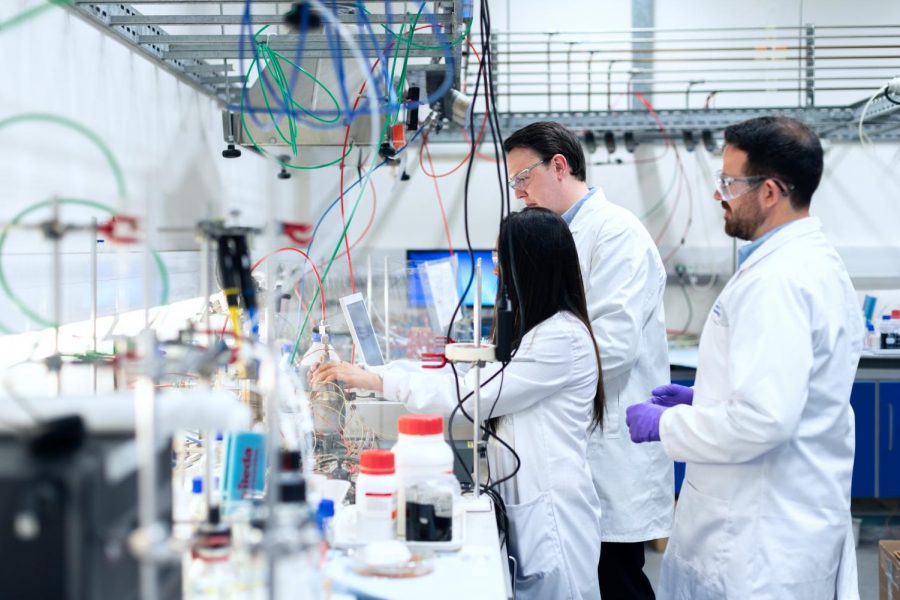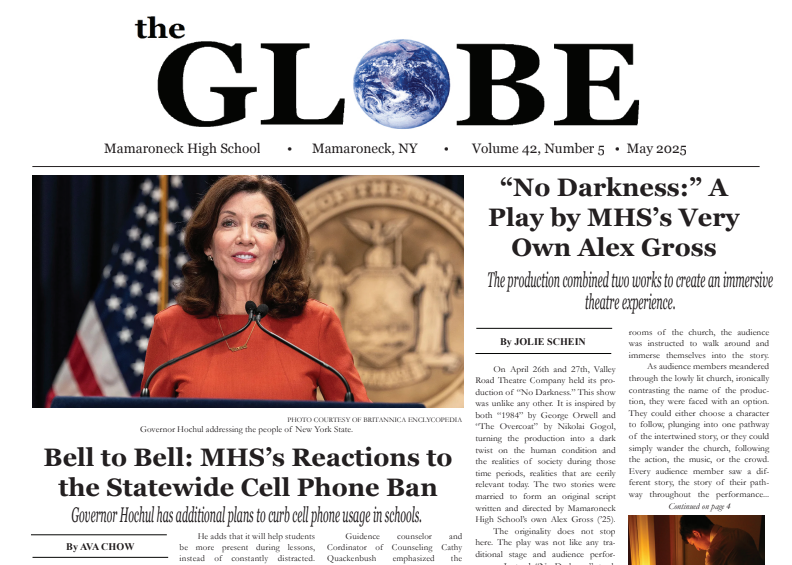OSR Students Seek Pandemic-Friendly Mentorship Opportunties
What OSR students could have been doing in the lab had COVID-19 not forced them out of the lab.
March 15, 2021
In light of the pandemic, many extracurricular opportunities for students have been brought to a harsh stop. The Original Science Research (OSR) internships are no exception. OSR is an elective class at MHS that guides students through the process of conducting research in a specific field of science. Much of the first two years of the program consists of in-depth study about a desired field of research and outreach to potential scientists to work within that field.
Last summer, all in-person laboratory internships were cancelled due to the lockdown. Some lucky students were able to participate in virtual research projects, however, this year, OSR has a new approach to landing internships during the pandemic. Guido Garbarino, one of the OSR teachers commented that they, ‘have been telling mentors that [they] are open to having a virtual or data analysis based experience for students if an in-person laboratory internship proves to be impossible.” With this approach, students are seeing some success. With the new option of virtual internships, mentors do not have to consider institutional permissions in hosting students, most of which remain uncertain due to the course of the pandemic. Thus, most students who have successfully arranged an internship will be participating virtually.
A virtual internship typically would entail a data analysis project of some kind. Garbarino described how, “In some cases, students may be looking at images for cellular and molecular biology projects, or MRI images for neuroscience projects, and other types of images for astronomy. [He] thinks some mentors may give students opportunities to watch some procedures over Zoom, and participate in laboratory meetings.” Despite the unconventional arrangements, students will still be able to take part in meaningful and legitimate research, which is one of the primary objectives of the OSR program. “The most important goal of the program is for students to learn to work and think like scientists, so [the program is] hoping that those skills are still taught. Most students finish their internships with projects that they can use to write research papers and present at research competitions,” Garbarino continues.
Unfortunately, other OSR students haven’t been quite as successful in the search for a mentor. Sasha Bilik (‘22) had an internship arranged for last summer that was sadly cancelled due to the pandemic. Bilik, who wishes to study neurodegenerative diseases, specifically multiple sclerosis, has been reading up on this field and sending mentor emails since the beginning of her sophomore year in 2019. Unfortunately, many mentors are experiencing challenges of their own in hosting students, both in-person and virtually. “Many scientists have taken a break from researching due to the pandemic, and others simply won’t take interns for the same reason.” says Bilik. The pandemic has caused numerous institutions and academic laboratories to wind down their work. Deemed “non-critical,” most non-COVID related research was put on pause. Bilik recognizes that, “This is a challenging time and scientists have a lot more to worry about.”
Despite the added challenge to an already difficult process, OSR students are persisting in their mentor search. With the alternative virtual internship option, students continue to reach certain levels of success. Over the course of the semester, other students will continue to work toward securing an internship in whatever form is practical during this difficult time.






